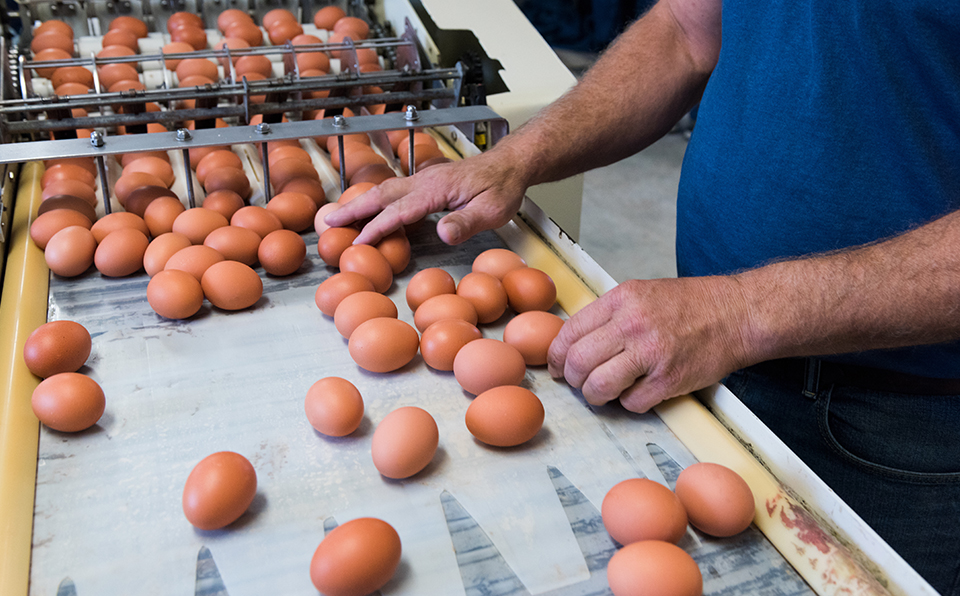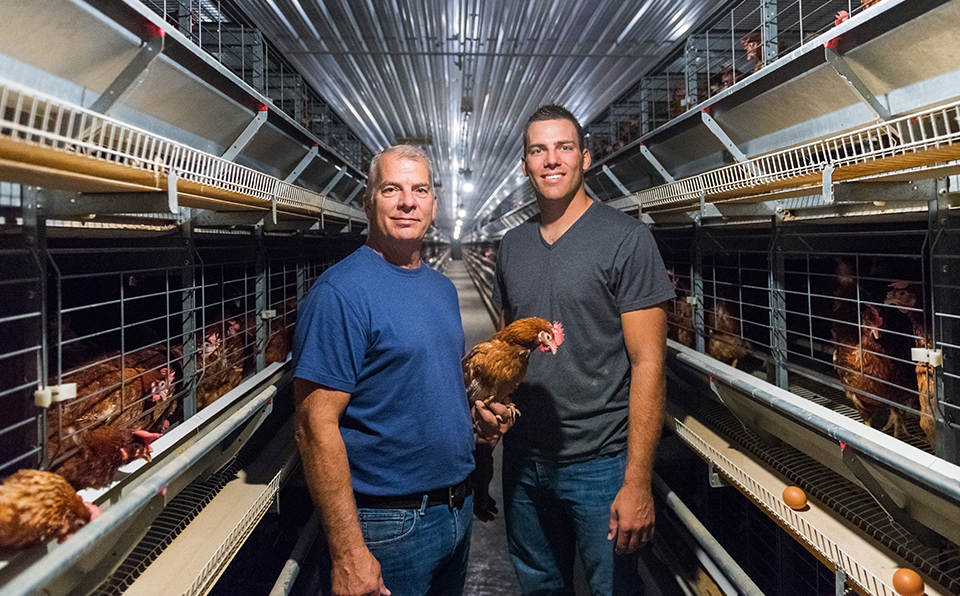
Interview with Roger Pelissero, Chair of Egg Farmers of Canada
By Egg Farmers of CanadaWe interviewed Egg Farmers of Canada Chair Roger Pelissero on his egg farm in the Township of West Lincoln, Ontario. In part one of that interview, we introduced you to the Pelissero family. In part two, we take a look at the challenges and opportunities affecting Canada’s egg industry, from strengthening consumer trust to the ongoing NAFTA negotiations.
Tell us about your work with Egg Farmers of Canada and Egg Farmers of Ontario.
I was elected to the Egg Farmers of Ontario Board of Directors in 2011, representing an area called Zone 4 that includes Niagara, Haldimand and Norfolk. In 2012, Egg Farmers of Ontario elected me as the representative for Ontario to the national Board. In 2017, after five years at the national Board, I was elected Chair of Egg Farmers of Canada.
My role as Chair is about facilitating discussions between provincial and territorial egg boards. In the end, we’re all working towards the same goal: safeguarding Canada’s egg industry and ensuring egg farming remains a sustainable business here in Canada. So, our work is about what we can do together to maintain a strong and healthy industry.
What are some of the challenges facing the industry and why is it important for egg farmers to have a voice on the national stage?
The issue at the forefront is trade—the ongoing North American Free Trade Agreement (NAFTA) renegociations. We’re closely watching the process as it could have an impact on both Canadian consumers and egg farmers. Our focus is to advocate for the three pillars of the system of supply management. Each of these pillars are equally important in ensuring that the system operates smoothly. Supply management is a Canadian success story and a policy that delivers food security to our communities—let’s keep it that way.

Why is supply management important to consumers and farmers?
First, supply management delivers the fresh, high-quality eggs that Canadians want and enjoy. No matter where you are as a Canadian, you can confidently buy locally produced eggs. As for farmers, well, it allows Canada’s more than 1,200 egg farmers to earn a stable income and support their local communities—we go to our local feed mills to purchase feed, buy equipment from local hardware stores, provide employment—and keep rural Canada strong.
Research shows strong support for supply management on the part of Canadians. Where do you think that support comes from?
I think it comes from their confidence in us as farmers. Canadians trust us. It’s critical as we move forward to maintain and strengthen that trust. One way we do that is by remembering that our product is part of the everyday lives of people all around us.
Part of this is being mindful of how our business affects the environment, for example. We did a study and found that there has been a reduction in greenhouse gas emissions (GHG) per tonne of eggs produced since 2012.1

What advice would you offer new farmers entering the industry?
It’s great to see young people in the industry—our daughters and sons, and young people starting operations thanks to programs designed to make it easier for new egg farmers to get a start. The most valuable step the next generation can take is to recognize that what we have here in Canada is unique. Cherish it. Nurture it. And never take it for granted.
________________________________________________________________________________________________________________
1Turner, I., Heidari, D., and Pelletier, N. (2022). Life cycle assessment of contemporary Canadian egg production systems during the transition from conventional cage to alternative housing systems: Update and analysis of trends and conditions. Resources, Conservation and Recycling. 176, 105907. https://www.sciencedirect.com/science/article/pii/S0921344921005164